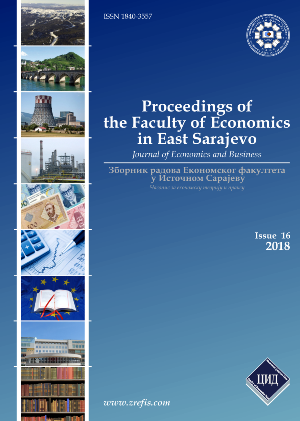ESTIMATING THE DETERMINANTS OF TAX EVASION USING EMPIRICAL DATA
DOI:
https://doi.org/10.7251/ZREFIS1716011DAbstract
Over the past several decades, tax evasion has shown a tendency for growth in all countries. Analogically to its presence in all tax systems, the tax evasion phenomenon is increasingly present in numerous theoretical, empirical and experimental works. The subject of this paper is the assessment of the basic determinants of tax evasion in the Republic of Serbia. We analyzed the economic and psychological factors, first through the literature review, and then empirically.
By the method of multiple regression analysis, we investigated several potential variables related to tax evasion: the number of tax inspectors, the number of controls, the rate of value added tax, and the number of controls with irregularities. The empirical analysis of the annual data of the Ministry of Finance was conducted for the period 2005-2016. The results show that the number of tax inspectors and the number of controls with irregularities have a positive, statistically significant impact on the volume of tax evasion in Serbia. The number of controls, as a variable of economic character, showed a negative, statistically significant influence on the evasion. The influence of the selected independent variable, the value added tax rate, is not statistically significant. If we complement the effects of all factors, this study contributes to the literature that explores the factors of tax evasion. The aim of our research is to draw the tax policy makers’ attention to the importance of the analyzed factors and to contribute to the fight against this inevitable and general problem.

